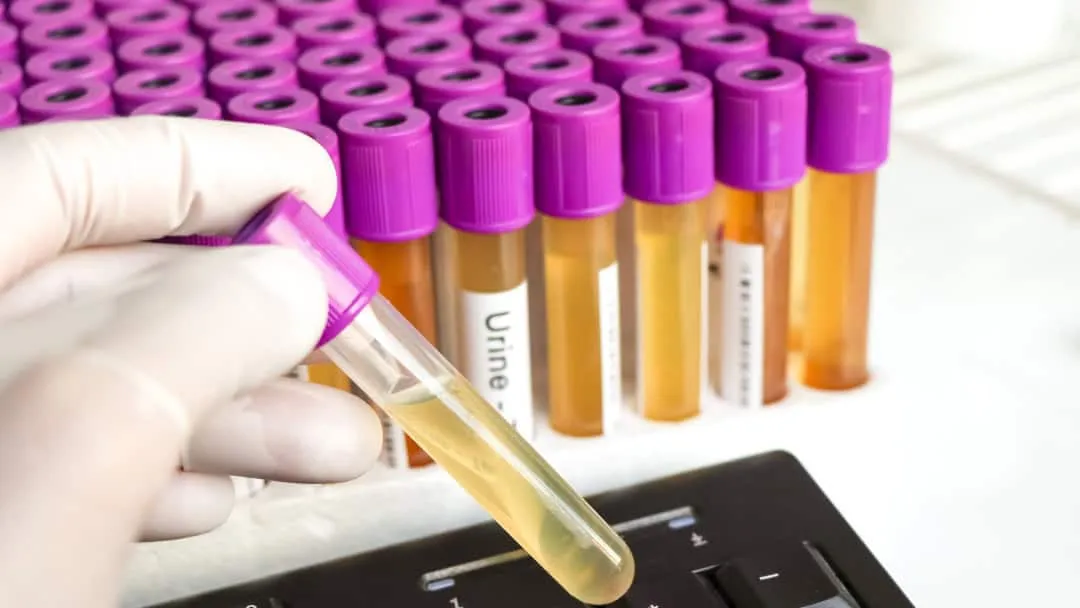When a child is struggling with health or developmental challenges, addressing symptoms alone may not provide lasting relief. To promote true healing and development, it’s important to look for root causes—underlying imbalances in the body that may be contributing to or driving symptoms. Assessments, including lab tests and clinical evaluations, provide helpful insights to help clinicians and families understand what’s going on beneath the surface.
Why Look at Root Causes?
Many chronic health conditions, including autism, are not caused by a single issue but are the result of a combination of physiological, environmental, and genetic factors. By identifying these root causes—such as inflammation, nutrient deficiencies, mitochondrial dysfunction, toxic load, or chronic infections—clinicians can develop more targeted, personalized, and effective treatment plans. This approach not only helps improve health outcomes but may also reduce dependence on medications and support overall development and quality of life.
Common Imbalances
Common and more-unique lab tests can check for imbalances such as:
- Minerals
- Trace minerals
- Unsupported genetic mutations
- Amino acids
- Glucose
- Hemoglobin A1C
Imbalances that affect our biochemistry and functioning may include:
- Salt conductivity
- Carbohydrate metabolism
- Protein metabolism
- Ammonia (metabolic toxicity)
- Cellular energy production (ATP)
- Oxidative stress
- Inflammation
- Cell membrane integrity
- Intracellular dehydration
- pH
These biochemical imbalances can affect your child’s personality, behavior, neurological functioning, immune functioning and allergic responses.
Types of Labs Tests: What Can Be Learned
Standard Lab Tests (Typically Covered by Insurance)
Standard blood work can be used to confirm foundational needs or provide new insights:
- Basic metabolic profile to better understand metabolism (e.g., glucose regulation, liver enzyme activity, and kidney function are all key players in a child’s overall health)
- Complete blood count (CBC) to identify anemia, infections, or immune system issues (e.g., infections during pregnancy or early childhood may increase the risk of autism).
- Lipid panels to assess cholesterol status for children (e.g., low cholesterol may be four times more common in children with ASD compared to neurotypical children).
- Thyroid function (TSH, T3, T4) to further evaluate metabolism and energy regulation.
- Vitamin D, B12, iron levels – to assess the status of key nutrients and co-factors that play important roles in neurological and immune function (practitioners might include additional elements, such as RBC zinc, RBC magnesium, folate, and homocysteine).
- Markers of inflammation like CRP or ESR are non-specific but can reinforce the need to search for underlying causes (e.g., diet and lifestyle often contribute to inflammation).
These tests can reveal nutrient deficiencies, immune dysregulation, infections, or systemic inflammation—all of which may affect a child’s energy, behavior, or development.
Specialty or “Functional” Lab Tests (Often Not Covered by Insurance)
Functional or boutique labs go deeper into how the body is functioning rather than just identifying disease. Examples include:
- Organic Acids Testing (OAT): This test checks for yeast overgrowth, neurotransmitter imbalances, and mitochondrial issues or other challenges that may need to be addressed.
- Comprehensive Stool Analysis or Microbiome Analysis: Evaluates digestion, inflammation, pathogens, and microbiome balance.
- Heavy Metal Testing (urine, hair): Screens for toxic exposures that can affect neurological development.
- Food Sensitivity Panels: Can identify immune reactions to foods that may not show up on standard allergy tests; can guide diet changes.
- Mycotoxin and Mold Testing: Screens for mold exposure, which can affect brain and immune function.
- Amino Acid and Fatty Acid Panels: To support neurotransmitter production and membrane health and identify functional deficiencies when put into clinical context.
- Immune System Panels: To identify autoimmunity or chronic infections.
These lab tests help identify biological contributors that may be missed by conventional approaches and enable more holistic, root-cause-oriented care. Testing these types of biomarkers can be especially helpful, even game-changing, for autism, ADHD, and chronic conditions where root causes are often multifactorial.
The Role of Clinical Assessments
Lab tests are powerful, but they don’t tell the whole story. Clinical assessments help identify functional imbalances, neurological delays, and physical stressors that lab work may miss. Examples can include:
- Functional Dentistry Assessments: Explore how jaw alignment, tongue ties, or breathing issues affect nervous system function or development.
- Neuro-Optometry Assessments: Evaluate how visual processing and eye movement impact behavior, learning, attention and development.
- Primitive Reflex Assessments: Identify retained reflexes that interfere with motor coordination, emotional regulation, learning and development.
- Chiropractic or Structural Assessments: Examine spinal alignment and its effects on the nervous system and motor development.
- Neurological Chiropractic Assessments: Look at vagal tone, balance, and proprioception to gauge brain-body integration.
These assessments can often reveal overlooked causes of developmental delays or behavioral concerns and help tailor therapies to the child’s unique needs. A more comprehensive list of integrative or root-cause oriented practitioners can be found here.
The Bio-Individual Approach: Genomics as an Example
Every child is unique—and so is their biology. Genomic testing can help identify predispositions or variations in key pathways such as detoxification (e.g., MTHFR, COMT), neurotransmitter metabolism, vitamin utilization, and inflammation. Understanding a child’s genetic makeup can guide clinicians in selecting the most appropriate interventions, such as:
- Specific nutrient supports needed to avoid pitfalls associated with certain gene variants
- Tailored strategies targeting a specific system’s decreased capacity to eliminate toxins
- Include or avoid different medications or supplements based on individual’s tolerability
Genomics is just one example of how a child’s bio-individuality should inform their treatment plan. What works for one child may not work for another, even if they share the same diagnosis.
Sample List of Lab Companies Commonly Used for Root-Cause Assessment
Lab Company
Key Tests & What They Assess
Mosaic Diagnostics (formerly Great Plains)
- Organic Acids Test (OAT): Gut health, yeast, mitochondria, neurotransmitters
- Mycotoxins
- Glyphosate
- Non-metal toxins
Genova Diagnostics
- GI Effects® Stool Test: Microbiome, digestion, inflammation
- NutrEval®: Comprehensive nutrient + mitochondrial profile
- GI-MAP™: DNA-based stool test for pathogens, dysbiosis, and immune function
Diagnostic Solutions Lab (DSL)
- Zonulin: Leaky gut marker
- Cytodx
- IGG/IGE Food Allergy Testing
- GI-Map
Doctor’s Data
- Urine / Hair Heavy Metals
- Comprehensive Stool Analysis
- Essential Elements Profile
Vibrant Wellness
- Neural Zoomer™: Autoimmunity affecting the nervous system
- Wheat Zoomer™: Gluten/wheat reactivity
- Food Sensitivity & Toxin Panels
ZRT Laboratory
- Neurotransmitter Panel: Serotonin, dopamine, GABA, etc.
- Saliva Cortisol Rhythm
- Thyroid panel
- Vitamin D panel
DUTCH / Precision Analytical
- DUTCH Complete™: Urinary hormones + cortisol rhythm + some organic acids
Useful for adrenal, sleep, mood, puberty issues
SpectraCell
- Micronutrient Panel: Intracellular vitamins, minerals, amino acids
- Cardiometabolic testing
- Telomere testing
IntellxxDNA
- Genomic DNA Analysis: Deep interpretation of SNPs related to detox, inflammation, methylation, neurotransmitters, cognition
Used for truly personalized plans
TinyHealth
- Microbiome Testing: Can be used for all ages.
Specializing in pregnant moms, infants and children
Sanesco Health
- HPA Axis Panel (neuroendocrine): Saliva and urine test to assess stress, mood, sleep issues via cortisol + neurotransmitters
Iliad Neurosciences
- Autoimmune Encephalopathy & Brain Immune Reactivity Testing
Focus on neuroinflammation, antibodies to brain tissue
OmegaQuant
- Omega-3 Index & Fatty Acid Profiles: Measures EPA/DHA levels, omega-6 to omega-3 ratios
Important for brain + inflammatory balance
GX Sciences / 3X4 Genetics / GeneSight
- Genomic SNP Panels: Personalized data on methylation (e.g., MTHFR), COMT, detox, nutrient metabolism, mental health
IgeneX
- Lyme disease
- Lyme co-factors
- Tick-borne diseases
Moleculera Laboratories
- PANDAS/PANS
- Autoimmune neurobiology testing
Galaxy Diagnostics
- Lyme disease
- Lyme co-factors
- Tick-borne diseases
ReligenDX
- FRAT®
- MitoSwab™
Lab Tests and Assessments to Address the Whole Child
Looking at root causes through labs and clinical assessments doesn’t replace traditional diagnostics—it enhances them. By understanding where a child’s body may be struggling to function optimally, parents and practitioners can work together to create personalized, effective care plans. In developmental conditions like autism, this can mean addressing not just symptoms but addressing the whole child.
About Heather Tallman Ruhm MD
Heather Tallman Ruhm MD is the Medical Director of the Documenting Hope Project. She is a Board Certified Family Physician whose primary focus is whole-person health and patient education. She draws on her conventional western training along with insights and skills from functional, integrative, bioregulatory and energy medicine. She believes in the healing capacities of the human frame and supports the power of self-regulation to help her patients recover and access vitality.

Still Looking for Answers?
Visit the Documenting Hope Practitioner Directory to find a practitioner near you.
Join us inside our online membership community for parents, Healing Together, where you’ll find even more healing resources, expert guidance, and a community to support you every step of your child’s healing journey.







